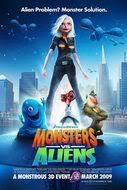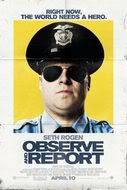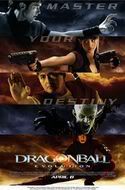Cars ( 2006 )
 Rated: G
Rated: GRuntime: 1 hr 56 mins
Genre: Education/General Interest
Theatrical Release:Jun 9, 2006 Wide
Box Office: $244,052,771
Review :
THE temptation to write about "Cars" using automotive metaphors may be unwise, but it's also irresistible. You could say, for instance, that the film — the first directed by the Pixar guru John Lasseter since the company's 1999 hit "Toy Story 2" — tools along at an easy clip, rather like a Volvo station wagon en route to another family vacation. At no point does it spin out of control, much less venture off-road. Instead, the film just putt, putt, putts along, a shining model of technological progress and consumer safety. But, as Ed (Big Daddy) Roth might say, chrome don't get you home and neither does 3D animation.
Mr. Roth was the creator of a delightfully unappetizing cartoon rodent called Rat Fink, a kind of anti-Mickey Mouse mascot for the hot-rod set. Given Pixar's carefully cultivated — and, for the most part, justified — reputation as a modestly maverick outfit, it would be nice to think that a decal of Rat Fink adorns the computers of at least a couple of the film's many, many animators. But both in its ingratiating vibe and bland execution, "Cars" is nothing if not totally, disappointingly new-age Disney, the story of a little cherry-red race car, Lightning McQueen (voiced by Owen Wilson), who can win the race of life only after he learns the value of friendship and the curvy appeal of Porsche Carrera (Bonnie Hunt).
Right off we know we're not in Kansas anymore or, for that matter, Monstropolis, home to the critters from "Monsters, Inc." or suburban Metroville, where the superheroic family in "The Incredibles" lives. The film opens at an enormous speedway, where some dozen candy-colored race cars, including Lightning McQueen, are whooshing around a track as thousands upon thousands of similarly polychromic jalopies cheer, wave flags and do the wave.
Welcome to Weirdsville, Cartoonland, where automobiles race — and rule — in a world that, save for a thicket of tall pines and an occasional scrubby bush, is freakishly absent any organic matter. Here, even the bugs singeing their wings on the porch light look like itty-bitty Volkswagen beetles.
That sounds like a slap and a tickle, and for a while it's both. As written by Mr. Lasseter, who shares screenwriting credit with Dan Fogelman, Joe Ranft, Kiel Murray, Phil Lorin and (whew) Jorgen Klubien, the film hinges on a premise older than the 1951 Hudson Hornet named Doc (Paul Newman), who gives the story its requisite geezer wisdom. After taking a wrong turn on his way to a race, McQueen lands in Radiator Springs, a town that time and the freeway forgot. There, on a derelict lick of asphalt, he meets a pileup of metal and ethnic clichés, including a tow truck with a deep-fried accent (Larry the Cable Guy as Mater) and a lowrider that apparently hopped in from East L.A. (Cheech Marin as Ramone).
This ethnic and cultural profiling is pretty much par for the animated film course, hence Jenifer Lewis, as a two-tone 1950's ride with big fins called Flo, provides the only identifiable "black" voice. Less wince-inducing are Luigi (Tony Shalhoub), a banana-yellow Italian-accented Fiat that runs the local tire store; Sarge (Paul Dooley), a World War II jeep as memorable and colorful as dung; and Fillmore (George Carlin), a VW bus who extols the virtues of organic fuel, mutters about conspiracies and raises the Stars and Stripes to the guitar squeals of Jimi Hendrix.
Given the film's regrettably retro attitude toward all things automotive (not a hybrid in sight!), it's no surprise that Fillmore, this desert outpost's most credible resident, is also its designated kook.
An animated fable about happy cars might have made sense before gas hit three bucks a gallon, but even an earlier sticker date couldn't shake the story's underlying creepiness, which comes down to the fact that there's nothing alive here: nada, zip. In this respect, the film can't help but bring to mind James Cameron's dystopic masterpiece, "The Terminator," which hinges on the violent war of the machine world on its human masters. To watch McQueen and the other cars motor along the film's highways and byways without running into or over a single creature is to realize that, in his cheerful way, Mr. Lasseter has done Mr. Cameron one better: instead of blowing the living world into smithereens, these machines have just gassed it with carbon monoxide.
Rendering plausible human forms remains one of 3D animation's biggest hurdles, something that Pixar directors like Andrew Stanton ("Finding Nemo") have readily admitted. As if realizing that they can't (yet) compete with nature, Pixar filmmakers tend to avoid the human form or create caricatures that, by virtue of their very exaggeration (think of the middle-age spread bedeviling Mr. Incredible's wife), are wonderfully lifelike.
With his machine world, however, Mr. Lasseter appears to have tried to do an end run around the vexing problem of the human body with cars that might as well have come out of a Chevron advertisement. Even stranger, the film turns Detroit's paving over of America into an occasion for some nostalgic historical revisionism. Surreal isn't the word.
Over the last two decades Pixar has invigorated American mainstream animation with charming stories and sterling technique, reaching a company best with the consecutively released "Monsters, Inc.," "Finding Nemo" and "The Incredibles." The age of Pixar may not be as golden as that of 1930's and 40's Disney, but it's an estimable run, especially since each new Pixar feature has reached deeper and higher in thematic and aesthetic preoccupations.
Like classic Disney, Pixar films are invariably traditionalist, with stories of familial and social retrenchment, but they're also witty and playful, fresh in both graphic and written line. One clunker won't shut down or even threaten the factory line, but here's hoping that as this onetime scrapper becomes increasingly entrenched and establishment, it keeps its geeks-and-freaks flag flying.
Synopsis:
Talking cars rediscover the quirky originality of middle America in this inventive animated film from the folks at Pixar (TOY STORY, FINDING NEMO). Owen Wilson does the voice of arrogant rookie... Talking cars rediscover the quirky originality of middle America in this inventive animated film from the folks at Pixar (TOY STORY, FINDING NEMO). Owen Wilson does the voice of arrogant rookie racecar Lightning McQueen, who winds up stranded in the small desert town of Radiator Springs on his way west to a big showdown. Sentenced to community service after literally tearing up the road in a high-speed chase, at first all Lightning can think of is getting back to the world of corporate sponsorship and merchandising tie-ins he loves so well. Eventually, however, the eccentric residents of Radiator Springs begin to grow on him, especially the attractive lady Porsche lawyer (Bonnie Hunt) and a rusty old tow-truck (Larry the Cable Guy). There's also a hippie Volkswagen (George Carlin), a low-riding T-bird (Cheech Martin) and Paul Newman as the gruff, curmudgeonly Doc Hudson, the town judge who harbors his own checkered-flag past. The story may not be new, but Pixar's precision-engineered animation brilliantly illuminates the town and its surrounding cactus-studded vistas down to the minutest detail, and director/writer John Lasseter keeps the film's satiric wit and generous heart in perfect alignment. Adults in the audience should appreciate the film's celebration of old-school American eccentricity, and the kids will dig all the thunderous grit and high-octane wheel burning. Randy Newman composed the score; James Taylor sings one of the songs.
Starring: Owen Wilson, Paul Newman, Michael Keaton, George Carlin, Larry the Cable Guy, Bob Costas, Cheech Marin, Bonnie Hunt, Paul Dooley, Guido Quaroni, Michael Wallis, Darrell Waltrip Director: John Lasseter Producer: Darla Anderson Screenwriter: Kiel Murray, John Lasseter, Phil Lorin, Dan Fogelman Composer: Randy Newman Studio: Buena Vista Pictures



















0 comments:
Post a Comment